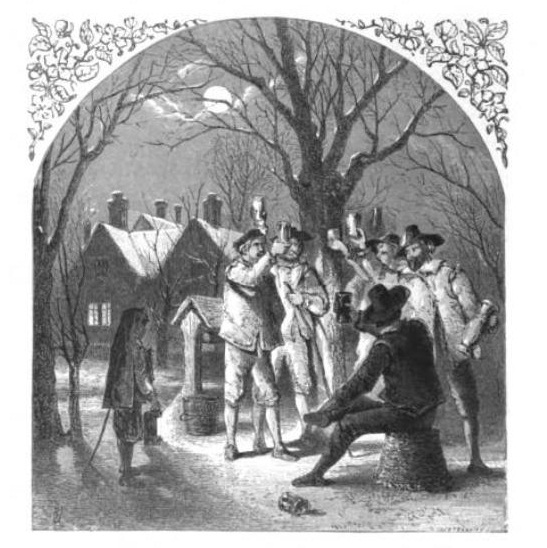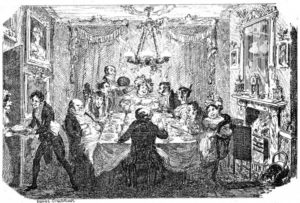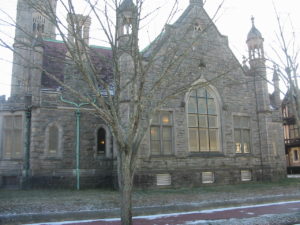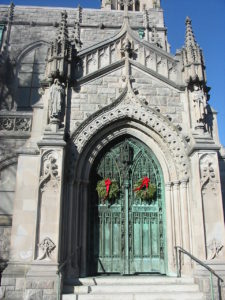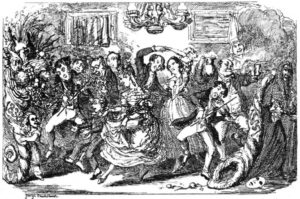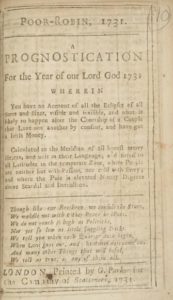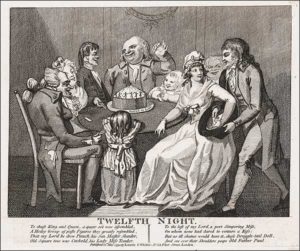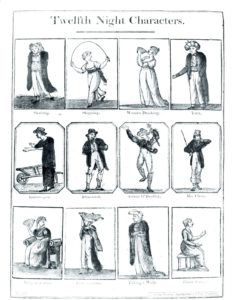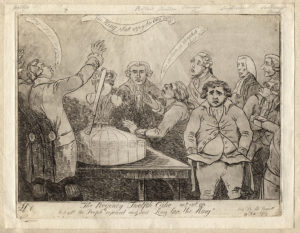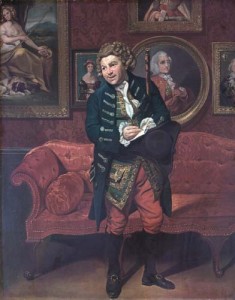Today is Epiphany, the day when Christians celebrate the arrival of the Three Magi (or Three Wise Men or Three Kings) with (not particularly useful) presents for Baby Jesus. In some countries, like Spain, this is still the day when children are given their Christmas presents.
While in the English tradition today, Epiphany simply marks the day when you are supposed to take down the Christmas tree and all your other Christmas decoration, back in the Regency era, Epiphany formed a very important part of the whole Christmas festivities as it marked the end of the 12 Days of Christmas.
Especially the evening before Epiphany, Twelfth Night or Twelfth Day’s Eve, was a time for fun and partying with dancing and drinking. In importance, the celebrations were second only to Christmas.
In the country, Twelfth Night was in many places the time for the custom of wassailing the fruit trees, especially the apple trees, in the orchards. The custom was common in most of the southern and western counties of England, though the date could vary, and in some places, the wassailers would visit the orchards several days in a row (hey, it’s a good excuse for a night out with your buddies!).
Typically, the wassailers would go to the orchards at night with lanterns in order to sing songs (no doubt some of them were a bit… eh… vulgar) under the fruit trees and making a great racket by beating against pans and drums. Then the trees (or just the best tree in the orchard) would be beaten with sticks, before cider was poured over the roots (the order of these actions might vary from place to place). According to popular superstition, this would ensure a fruitful year and a good harvest in the next autumn.
In Christmas with the Poets, the following lyrics are given for a typical wassailing song:
“Here’s to thee, old apple tree,
Whence thou may’st bud, and though may’st blow!
And whence though may’st bear apples enow!
Hats full! Craps full!Bushel – bushel – sacks full!
And my pockets full too! Huzza!”
If you look at the illustration above, I’d say it strongly suggests that the wassailers had to try the cider too before giving it to the apple tree (I mean, where would be the fun of going wassailing, if you can’t have a bit of drink yourself, right?)
Today, wassailing the apple trees is very popular with revivalists, who nowadays often wear costumes when visiting the orchards. Sometimes, as in Chesterfield, this is also paired with Morris Dancing:
And speaking of trees: last summer I went to the Black Forest and was interviewed by Michael Portillo about the fairy tales of the Brothers Grimm for the BBC documentary Great Continental Railway Journeys. The episode with yours truly was broadcast last November. If you’d like to see me walking through a very, very muddy forest, you can check out a rather bad quality version of the interview here (the sides of the film have been cut off). 🙂

